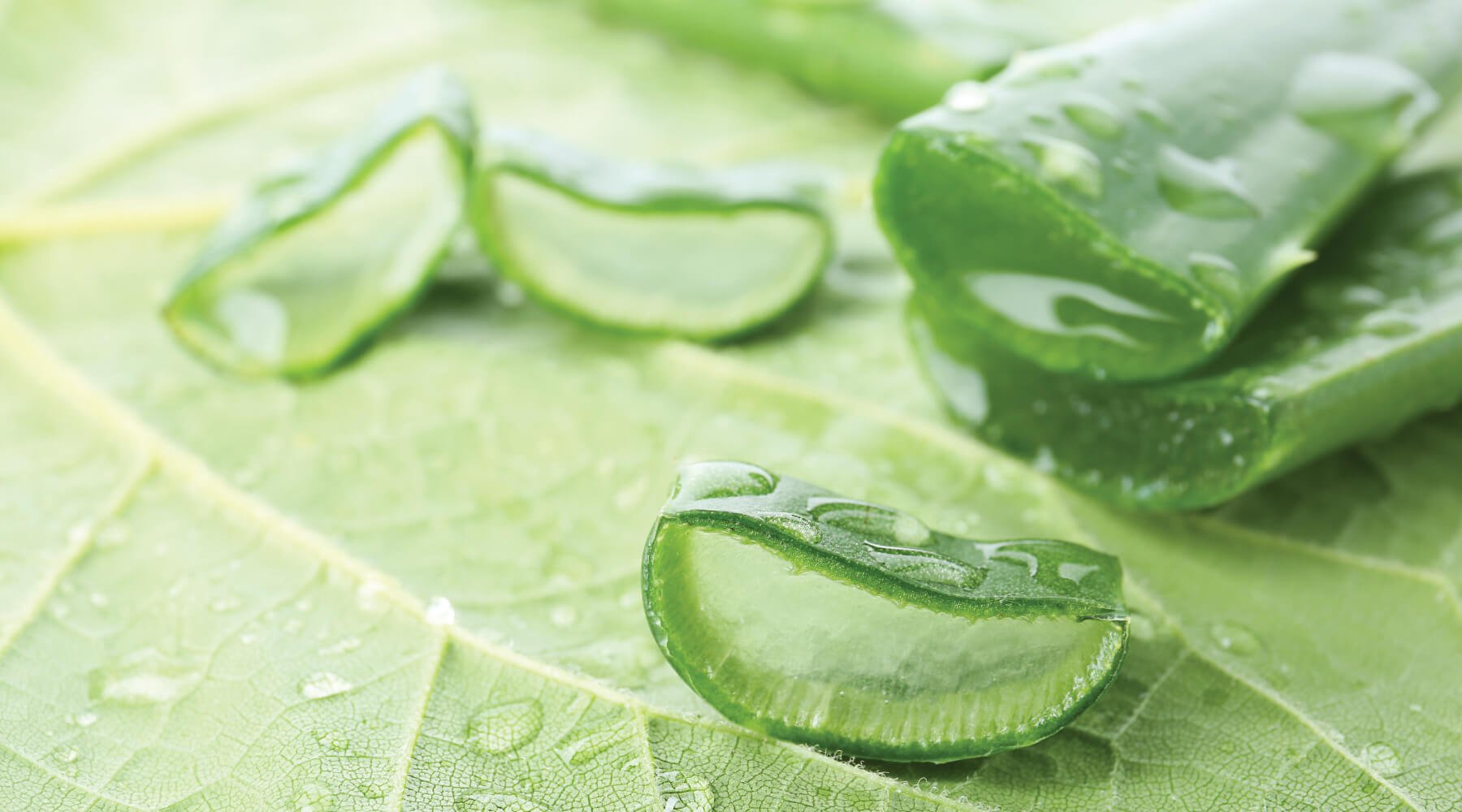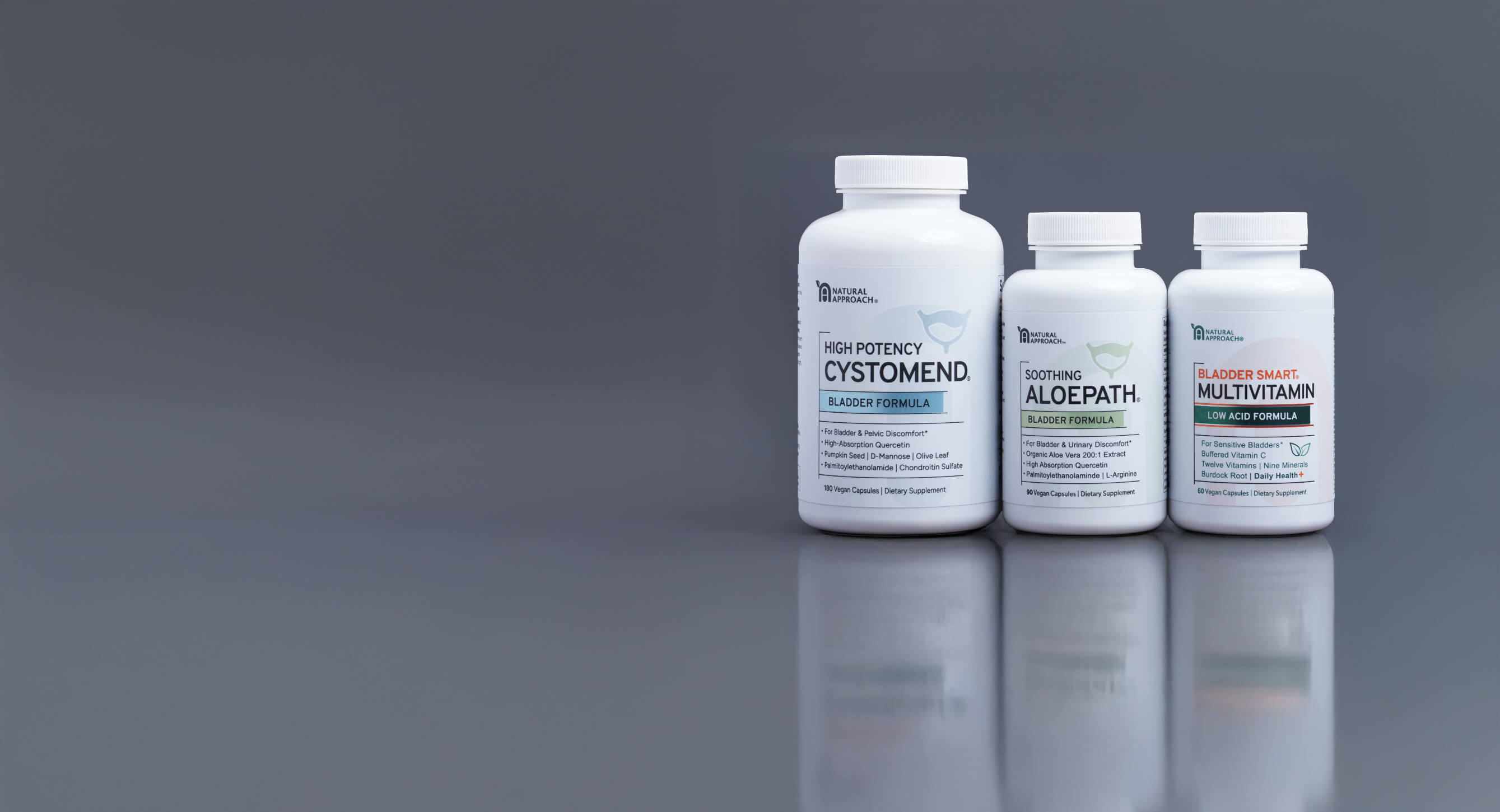Finding Comfort: Exploring Aloe Vera for Interstitial Cystitis Relief
Interstitial Cystitis (IC), also known as Bladder Pain Syndrome (BPS), is a chronic and often debilitating condition characterized by persistent bladder pain, pressure, and urgent, frequent urination. It's a challenging condition for many, impacting daily life and well-being. If you're interested in a more in-depth understanding of this complex condition, you can learn more about Interstitial Cystitis here: Understanding IC.
For those navigating the complexities of IC, the search for effective relief is paramount. Amidst various treatment approaches, one natural remedy has consistently emerged as a topic of interest and positive anecdotal feedback within the IC community: aloe vera. This blog post will delve into how this ancient plant may offer a unique path to comfort for those with Interstitial Cystitis.

A Natural Ally for Bladder Health?
Aloe vera, renowned for its soothing and healing properties across various applications, has garnered significant attention for its potential role in managing IC symptoms. Its primary mechanism of action in the context of IC is believed to be linked to its rich concentration of glycosaminoglycans (GAGs).
As mentioned, a compromised GAG layer is often implicated in IC. Oral aloe vera supplements, particularly those with high concentrations, are thought to supply these essential GAG molecules. The aim is to help rebuild and restore the protective barrier of the bladder lining, shielding it from irritating substances in urine and reducing inflammation [2].
Beyond its GAG content, aloe vera brings a suite of beneficial compounds to the table that may further support bladder comfort:
- Anti-inflammatory properties: Aloe vera contains natural compounds like acemannan, campesterol, and b-sitosterol, which have demonstrated anti-inflammatory effects. Reducing inflammation within the bladder wall is crucial for alleviating pain and discomfort in IC [3].
- Analgesic (pain-relieving) qualities: Components such as barbaloin and salicylic acid found in aloe vera may contribute to pain reduction, offering a measure of relief from bladder pain [4].
- Wound-healing capabilities: Aloe vera is known to promote cell growth and tissue regeneration [5]. In the context of IC, this could theoretically aid in the repair of a damaged or irritated bladder lining, fostering a healthier bladder environment.
- Antiseptic properties: While IC is not an infection, a healthy bladder micro-environment is always beneficial, and some properties of aloe vera may contribute to this.
What Does the Research Say? Unpacking the Evidence
While large-scale, pharmaceutical-level clinical trials specifically on aloe vera for IC are still a developing area, existing research and widespread patient experiences offer encouraging insights:
- Patient Surveys: A notable survey conducted by Desert Harvest Aloe Vera among 600 IC patients reported that a significant 92% experienced "significant relief" from their symptoms after using oral aloe vera [6]. Patients observed improvements in pain, urethral burning, and urinary urgency/frequency. While self-reported, these findings highlight a strong positive perception among actual users.
- Pilot Studies: A smaller, double-blind, placebo-controlled study provided early scientific backing, showing that 87.5% of participants experienced some or complete relief of their IC symptoms within 30 days of taking freeze-dried aloe vera capsules [7]. This suggests a promising therapeutic effect.
- Ongoing Research: The scientific community continues to explore aloe vera's potential for IC. Researchers, including those at Wake Forest University, are engaged in clinical trials to further investigate the safety and efficacy of highly concentrated aloe vera products for IC. These efforts aim to build robust scientific evidence and potentially broaden recognition of aloe vera as a viable treatment option.
It's crucial to distinguish between types of aloe vera products. Experts typically recommend freeze-dried, highly concentrated aloe vera capsules that have had the laxative compounds (anthraquinones) carefully removed. Common liquid aloe vera juices, often processed with heat or citric acid, may lack the beneficial active ingredients for IC and could potentially exacerbate symptoms for some individuals due to their acidity or additives.
Beyond Aloe: A Synergistic Approach for Enhanced Comfort
While high-quality aloe vera forms the cornerstone of this approach, some advanced formulations go a step further by integrating other well-researched ingredients known to support bladder health. For instance, Aloepath is crafted with a powerful 200:1 organic aloe extract, ensuring a potent concentration of the beneficial GAGs and other compounds.
To provide a more comprehensive level of support, Aloepath also incorporates:
- L-Arginine: An amino acid vital for the production of nitric oxide. This can play a role in improving blood flow and relaxing bladder muscles, potentially contributing to overall bladder function and comfort [8].
- Quercetin: A potent bioflavonoid celebrated for its significant anti-inflammatory and antioxidant properties. Quercetin may help to calm irritation and inflammation within the bladder [9].
- PEA (Palmitoylethanolamide): A naturally occurring fatty acid amide that has gained recognition for its pain-relieving and anti-inflammatory actions [10].
This synergistic blend is designed to offer multi-faceted support, addressing various pathways of discomfort and inflammation in IC, thereby enhancing the potential for relief.
Important Disclaimer: The information provided in this blog post is for informational purposes only and is not intended to be medical advice. Dietary supplements, including Aloepath, are not intended to diagnose, treat, cure, or prevent any disease. Interstitial Cystitis is a complex medical condition, and individual results with any supplement may vary. Always consult with a qualified healthcare professional before starting any new supplement regimen or making changes to your treatment plan, especially if you have a medical condition or are taking other medications.
Incorporating Aloe Vera into Your IC Management Strategy
If you are considering incorporating aloe vera into your IC management plan, it is vital to consult with your healthcare provider. They can assess if it's a suitable option for your specific condition and guide you on appropriate dosage and potential interactions with other medications.
It's important to remember that IC management is highly individualized. What brings relief to one person may not work for another. A holistic approach often yields the best results, combining targeted supplements like specialized aloe vera formulations with dietary adjustments (avoiding common triggers like citrus, tomatoes, caffeine, and alcohol), stress reduction techniques, and potentially physical therapy.
The journey with Interstitial Cystitis can be challenging, but the emerging understanding of natural compounds like concentrated aloe vera offers a beacon of hope. For many, integrating such supportive measures can lead to finding significant comfort and a marked improvement in their quality of life.
References:
- Hurst, R. E., et al. "The role of glycosaminoglycans in the pathogenesis of interstitial cystitis." Urology, 2003, 61(1 Suppl 1), 22-26.
- Messing, E. M., et al. "Treatment of interstitial cystitis with freeze-dried aloe vera." Urology, 2005, 65(3), 441-446.
- Im, S. A., et al. "Antitumor activity of aloe vera against prostate cancer via inhibition of prostate-specific antigen production." Journal of Ethnopharmacology, 2011, 137(1), 589-595. (Note: While this specific study is on prostate cancer, it highlights the anti-inflammatory properties of aloe vera's components.)
- Davis, R. H., et al. "Aloe vera: a natural approach to chronic pain." Journal of the American Podiatric Medical Association, 1994, 84(4), 211-217.
- Maenthaisong, R., et al. "The efficacy of aloe vera used for burn wound healing: a systematic review." Burns, 2007, 33(6), 713-718.
- Desert Harvest. "Interstitial Cystitis Patient Survey Results." Data on file. (This refers to the survey conducted by Desert Harvest, often cited in discussions about aloe vera for IC).
- Messing, E. M., et al. "Treatment of interstitial cystitis with freeze-dried aloe vera." Urology, 2005, 65(3), 441-446.
- Parsons, C. L., et al. "The role of L-arginine in the diagnosis and treatment of interstitial cystitis." International Urogynecology Journal, 2001, 12 Suppl 2, S19-21.
- Shoskes, D. A., et al. "Quercetin in men with category III chronic prostatitis/chronic pelvic pain syndrome: a multicentre, randomized, double-blind, placebo-controlled trial." British Journal of Urology International, 2010, 105(7), 960-965. (While this study is on prostatitis, quercetin's anti-inflammatory properties are relevant to IC).
- Gabrielsson, L., et al. "Palmitoylethanolamide for the treatment of chronic pain: a systematic review and meta-analysis." Pain Physician, 2018, 21(3), E281-E292.




Understanding Interstitial Cystitis and Bladder Pain Syndrome